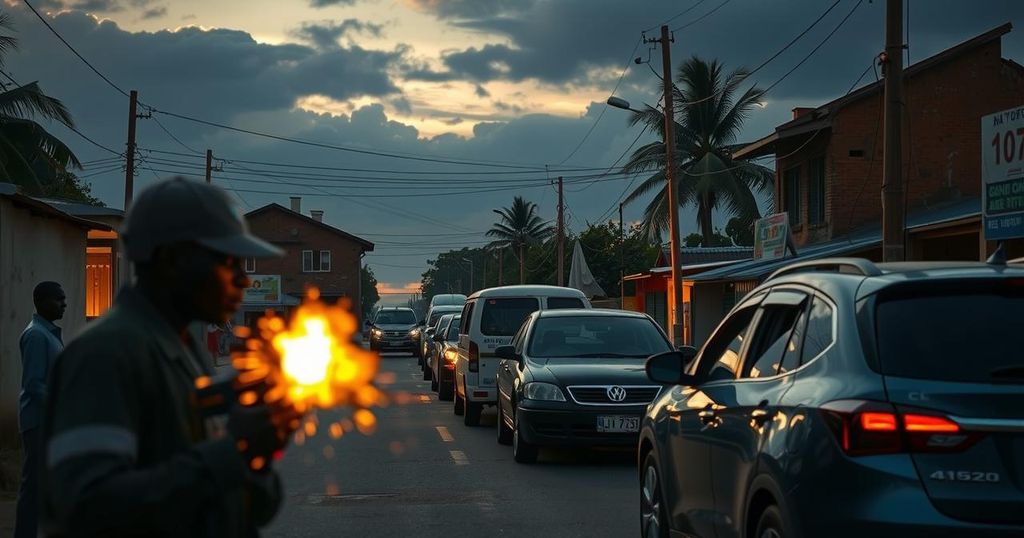Heavy Gunfire Erupts in Juba Amid Rising Tensions in South Sudan
Heavy gunfire erupted in Juba, South Sudan, near the military headquarters on Thursday evening, raising concerns about renewed tensions between factions loyal to President Salva Kiir and First Vice President Riek Machar. This incident follows a recent dismissal of the intelligence chief and the postponement of national elections, which have fueled unrest in the capital. Military officials are investigating the situation as the country grapples with its historical political struggles.
On Thursday evening, heavy gunfire erupted near the military headquarters in Juba, the capital of South Sudan, as reported by Reuters correspondents. The outbreak of violence began around 7 p.m. local time and continued for over an hour, albeit with intermittent lulls in intensity. As the situation remains unclear, military officials are in the process of clarifying the circumstances surrounding this unrest.
The conflict between factions loyal to President Salva Kiir and First Vice President Riek Machar has historical roots in the civil war that ravaged the nation from 2013 to 2018, resulting in significant loss of life. Despite a fragile peace arising from their unity in a transitional government since 2018, tensions have persisted, often flaring up over political disagreements, particularly concerning power-sharing arrangements. Notably, the dismissal of intelligence chief Akol Koor Kuc in early October by President Kiir, who appointed a loyalist to the position, has been cited as a catalyst for recent unrest, garnering concerns from diplomats and analysts alike for its implications on stability. This development occurred just weeks after the transitional government postponed national elections, initially scheduled for December, for the second time.
South Sudan has a tumultuous history, characterized by a bitter civil war that has led to the deaths of hundreds of thousands and the displacement of millions. The power struggle between President Salva Kiir and First Vice President Riek Machar has defined South Sudan’s political landscape since the country gained independence from Sudan in 2011. Following a peace agreement in 2015, both leaders re-entered a coalition government, leading to a tentative peace but with occasional eruptions of armed conflict, particularly over governance disputes and resource allocation. The dismissal of key political figures can signal shifts in power dynamics, inadvertently reigniting old tensions that threaten the stability of the region as it emerges from a protracted conflict.
The recent outbreak of gunfire in Juba highlights the fragile peace in South Sudan and the persistent tensions between the ruling factions. The ongoing struggle for power and the implications of leadership changes are significant factors in maintaining stability. As the nation braces for future elections, it remains crucial for political leaders to address existing grievances and ensure a peaceful resolution to their conflicts to foster a safe environment for all citizens.
Original Source: indianexpress.com




Post Comment